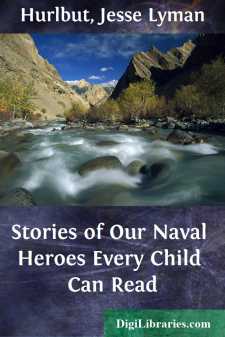Categories
- Antiques & Collectibles 13
- Architecture 36
- Art 48
- Bibles 22
- Biography & Autobiography 813
- Body, Mind & Spirit 142
- Business & Economics 28
- Children's Books 15
- Children's Fiction 12
- Computers 4
- Cooking 94
- Crafts & Hobbies 4
- Drama 346
- Education 46
- Family & Relationships 57
- Fiction 11828
- Games 19
- Gardening 17
- Health & Fitness 34
- History 1377
- House & Home 1
- Humor 147
- Juvenile Fiction 1873
- Juvenile Nonfiction 202
- Language Arts & Disciplines 88
- Law 16
- Literary Collections 686
- Literary Criticism 179
- Mathematics 13
- Medical 41
- Music 40
- Nature 179
- Non-Classifiable 1768
- Performing Arts 7
- Periodicals 1453
- Philosophy 64
- Photography 2
- Poetry 896
- Political Science 203
- Psychology 42
- Reference 154
- Religion 513
- Science 126
- Self-Help 84
- Social Science 81
- Sports & Recreation 34
- Study Aids 3
- Technology & Engineering 59
- Transportation 23
- Travel 463
- True Crime 29
Stories of Our Naval Heroes Every Child Can Read
Description:
Excerpt
CHAPTER I
THE FIRST SEA FIGHT OF THE REVOLUTION
DOES it not seem an odd fact that little Rhode Island, the smallest of all our states, should have two capital cities, while all the others, some of which would make more than a thousand Rhode Islands, have only one apiece? It is like the old story of the dwarf beating the giants.The tale we have to tell has to do with these two cities, Providence and Newport, whose story goes back far into the days when Rhode Island and all the others were British colonies. They were capitals then and they are capitals still. That is, they were places where the legislature met and the laws were made.
I need not tell you anything about the British Stamp Act, the Boston Tea-party, the fight at Lexington, and the other things that led to the American Revolution and brought freedom to the colonies. All this you have learned at school. But I am sure you will be interested in what we may call the "salt-water Lexington," the first fight between the British and the bold sons of the colonies.
There was at that time a heavy tax on all goods brought into the country, and even on goods taken from one American town to another. It was what we now call a revenue duty, or tariff. This tax the Americans did not like to pay. They were so angry at the way they had been treated by England that they did not want that country to have a penny of their money. Nor did they intend to pay any tax.
Do you ask how they could help paying the tax? They had one way of doing so. Vessels laden with goods were brought to the coast at night, or to places where there was no officer of the revenue. Then in all haste they unloaded their cargoes and were away again like flitting birds. The British did not see half the goods that came ashore, and lost much in the way of taxes.
We call this kind of secret trade "smuggling." Providence and Newport were great smuggling places. Over the green waters of Narragansett Bay small craft sped to and fro, coming to shore by night or in secret places and landing their goods. It was against the law, but the bold mariners cared little for laws made in England. They said that they were quite able to govern themselves, and that no people across the seas should make laws for them.
The British did their best to stop this kind of trade. They sent armed vessels to the Bay, whose business it was to chase and search every craft that might have smuggled goods in its hold, and to punish in some way every smuggler they found.
Some of these vessels made themselves very busy, and sailors and shoremen alike were bitter against them. They would bring in prizes to Newport, and their sailors would swagger about the streets, bragging of what they had done, and making sport of the Yankees. They would kidnap sailors and carry them off to serve in the King's ships. One vessel came ashore at Newport, whose crew had been months at sea, trading on the African coast. Before a man of them could set foot on land, or see any of the loved ones at home, from whom they had been parted so long, a press-gang from a British ship-of-war seized and carried off the whole crew, leaving the captain alone on his deck....






